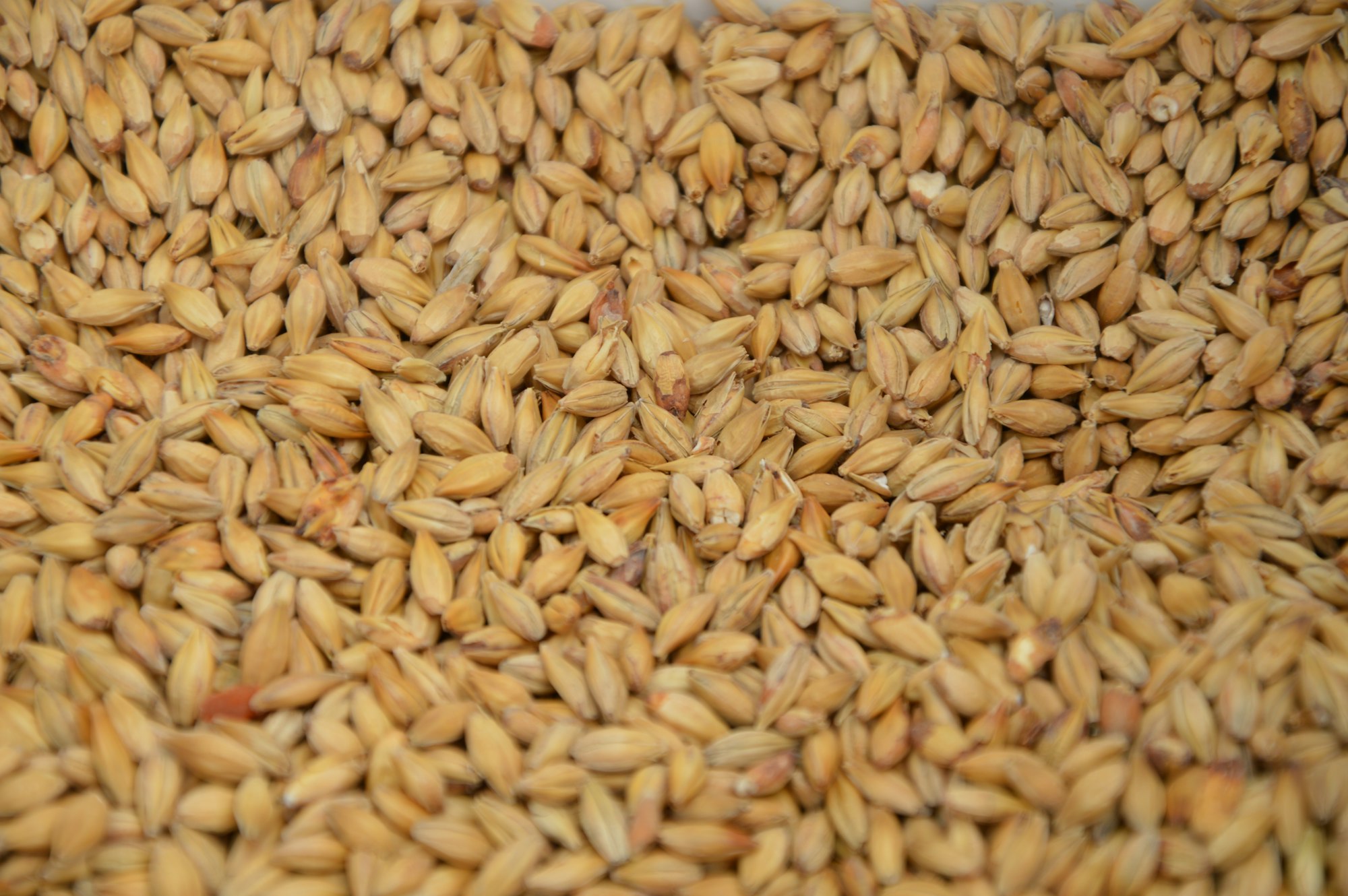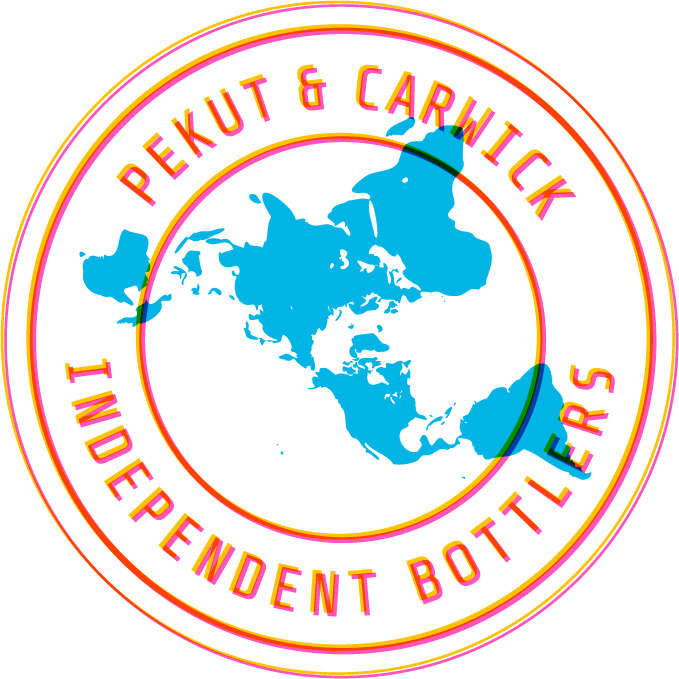About grain

A while back we mentioned that we’re working with Spirit Works Distillery in Sebastopol, California, to release some of their excellent wheat and rye whiskey. Those projects got us thinking about grain, and how this is our first foray into whiskeys not made from malt (remember malt? we're talking about barley that's been dried, steeped, germinated, and kilned).
All whiskey begins with grain.
When you’re drinking Scotch, you’re drinking malted, fermented, and distilled barley. That barley (maybe) grew in the moody, moist weather of Scotland and likely imparts a distinctive flavor to the Scotch in your glass. Or it maybe grew somewhere else in the world and that terroir you're getting is from the moody, moist Scottish bulk freight supply chain.
On the other hand, our Spirit Works whiskey is made from California-grown wheat and rye (respectively), two distinctive grains that bring their own unique flavor profile to a spirit. Wheat tends to add caramel-y notes, while rye adds a darker, more intense flavor that has been called "assertive" and "peppery". Using just one grain in a whiskey is a fun way to showcase the character of that grain.
What makes the grain good?
Basically...the farmer. Pesticides, as you may have guessed, are not good—not for the environment, not for your health, and most likely not for the flavor of the final product. Sourcing organic, no-spray, and biodynamic products is a basic first step to avoid pesticides. But those labels can be deceptive. For example, a giant monoculture farm can actually be organic and still waste resources, ignore the need for crop diversity, and underpay its workers. For us, good grain means ethical farming, which means crop diversity, fair labor practices, and resource conservation.
We particularly admire the work of people like Farmer Mai (Mai Nguyen), whose holistic approach to farming takes into account all of these factors. Mai plants drought-resistant crops and relies solely on rainfall for watering (pretty darned important in California, where we are in a near-constant state of drought). They also employ non-fossil-fuel-powered equipment as much as possible (what they call “human and animal power”), crop rotation to enrich the soil, and are very focused on systemic responses to issues like food deserts. In their own words, “I farm to foster food security for all.”
We're not likely to read any Diageo press releases about Farmer Mai's grain in the mash bill for big-brand bottlings of Lagavulin or Bulleit. Even at the single-barrel volumes that we work with, it's hard to get any sort of traceability to the original raw materials (so far, we've known the farm roughly 50% of the time). But this is changing (Spirit Works actually already distilled some of Farmer Mai's grain). For our part, every time we float a new product concept, we're balancing availability, quality, and cost with every detail we can glean about the product's source.
Where was it grown? How was it grown? Who harvested it? How are they compensated and supported?
We are committed to supporting farmers like Mai because it encourages other spirit producers, farmers, and raw materials brokers to likewise commit to sustainable and ethical sourcing in spirits. We may not have much buying power yet, but we're working on it. And when you vote with your dollars, even the big guys begin to take note.
Keep your eyes peeled for our upcoming Rye and Wheat whiskies and don't forget to check out our stellar single malts!
The barley in Maiden Voyage California Single Malt was grown in Esparto, malted in Alameda, then distilled and aged in Livermore (in total, it traveled only a little more than the average SF Bay commute). The malt in Heritage California Single Malt was sourced further afield (UK) and we don't know the raw materials source. It was also distilled and aged in Livermore. Both are delicious and make for a fun side-by-side tasting.

